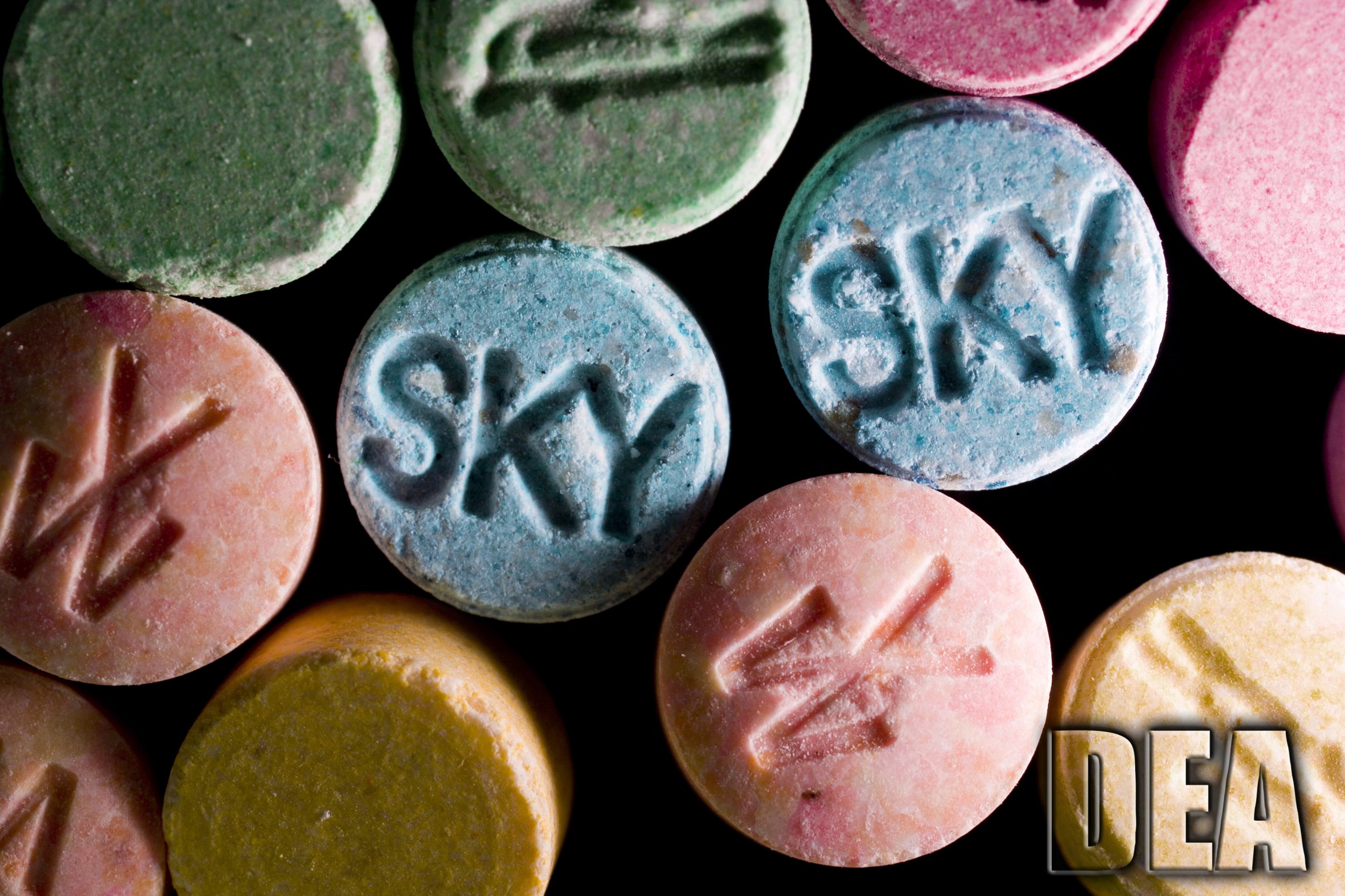
At least 11 people from the Wesleyan University campus in Middletown, Connecticut, were hospitalized on Sunday with symptoms consistent with drug overdoses. School officials and emergency responders are blaming MDMA, also known as Molly, a form of the drug ecstasy that medical experts say has become increasingly popular on college campuses.
Though some reports said 11 people had received medical treatment, Wesleyan President Michael S. Roth put the number at 12 in an email to students on Monday. That includes 10 students and two visitors.
"I ask all students: Please, please stay away from illegal substances, the use of which can put you in extreme danger. One mistake can change your life forever," Roth wrote. "And please keep those still hospitalized in your hearts and minds. Please join me in supporting their recovery with your prayers, thoughts and friendship."
In a statement on Monday, a Middletown Police Department spokeswoman, Lieutenant Heather Desmond, wrote that her department would be involved in an investigation into "the origin of the drugs taken" and to "determine the extent of the criminal involvement in the case."
A spokeswoman for Middlesex Hospital tells Newsweek it treated 11 people, three of whom are still there and four of whom were airlifted by helicopter to Hartford Hospital. She could not comment on the conditions of the three patients there. A spokeswoman for Hartford Hospital confirmed that four people were there. She too could not speak to their conditions. The police spokeswoman wrote that two individuals are in critical condition and two are in serious condition.
Middletown Fire Chief Robert Kronenberger tells Newsweek his department made seven runs to Wesleyan related to the incident on Sunday after receiving calls between 7:30 a.m. and 1:30 p.m. It rendered aid to eight individuals, including two people in a single dorm room. "We saw the trend and we worked with the university and the police department to notify them of the trend," Kronenberger says. "We've never had anything to this extent," he says, referring to health and safety issues at Wesleyan.
"A couple of them were in some serious dire straits," he says about the students, adding that they were cooperative.
"As a parent of two college-age students, this definitely concerns me and hopefully something to this extent will open eyes," he says.
Wesleyan's student newspaper, The Wesleyan Argus, first reported about the incident on its website on Sunday after the school's vice president for student affairs, Michael Whaley, sent a series of emails to students.
Medical experts say MDMA use on college campuses has grown in recent years, and while there have been reports of bad reactions to the drug, it appears the Wesleyan incident is the most widespread.
In 2013, a University of Virginia sophomore collapsed at a nightclub after taking MDMA and later died. Students at Syracuse University in Syracuse, New York; Plymouth State University in Plymouth, New Hampshire; and Texas State University in San Marcos, Texas have also died after taking the drug. In 2013, organizers of the Electric Zoo music festival in New York City cut the event short after two people died while taking MDMA, including a University of New Hampshire student.
"This age group is a risk-taking group that is willing to follow their friend wherever they go, and if the person next to them is popping a pill, then they're going to do it too," says Dr. Mark Neavyn, director of medical toxicology at Hartford Hospital, who treats patients there for MDMA overdoses.
"I think the popular culture engine kind of made it seem safer in some way," Neavyn says, referring to references to the drug by the singers Miley Cyrus and Madonna that made headlines.
But when it comes to MDMA, people are rarely taking what they think they're taking, the doctor says.
According to Neavyn, symptoms of an MDMA overdose include fast heart rate, high blood pressure, delirium, elevated body temperature and alterations in consciousness. Extreme cases could involve cardiac arrhythmia and seizures.
Wesleyan, which has about 2,900 full-time undergraduate students and 200 graduate students, also apparently dealt with MDMA-related issues last semester. As the Argus reported, the school's Health Services Department emailed students on September 16 following a series of MDMA-related hospitalizations.
One former Wesleyan student from the class of 2011, who requested anonymity when discussing drug use, says the news is not surprising, given the prevalence of drugs on campus. "Anything you can imagine...would be readily available there," the person says. "I don't think at Wesleyan you need [a campus event] to take drugs. If it's sunny, there's probably a good percentage of people that are taking something."
The campus activities calendar did not show any major events scheduled for Saturday or Sunday.
Another former Wesleyan student from the class of 2012, who also requested anonymity, says the drug culture at Wesleyan is comparable to that at similar schools. "It's one of those things where, much like at those schools, you kind of have an understanding of where you can go to get it and who had it," the person says. "If there's a will there's a way."
Uncommon Knowledge
Newsweek is committed to challenging conventional wisdom and finding connections in the search for common ground.
Newsweek is committed to challenging conventional wisdom and finding connections in the search for common ground.
About the writer
Max Kutner is a senior writer at Newsweek, where he covers politics and general interest news. He specializes in stories ... Read more
To read how Newsweek uses AI as a newsroom tool, Click here.








